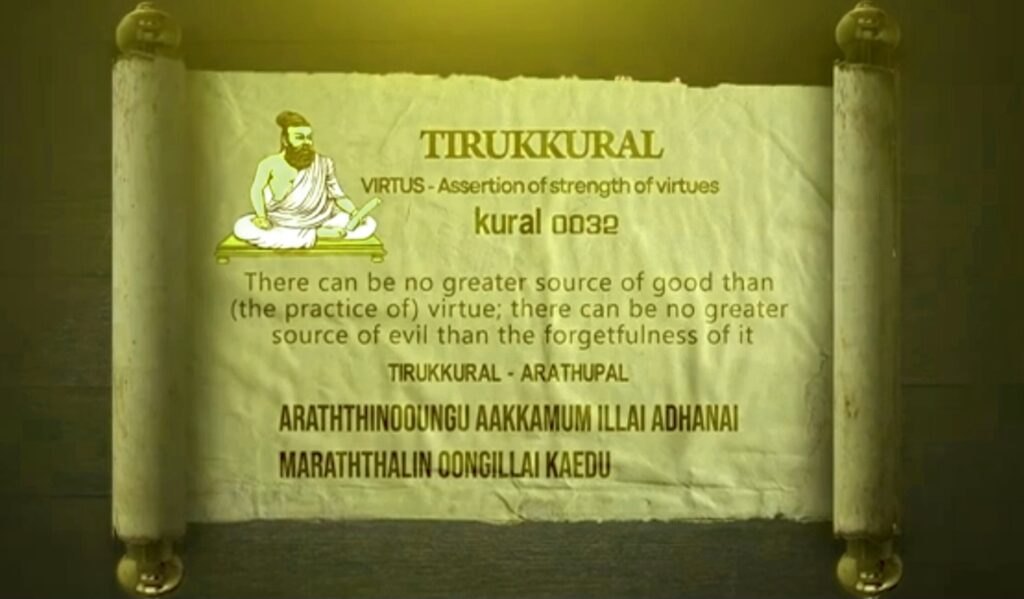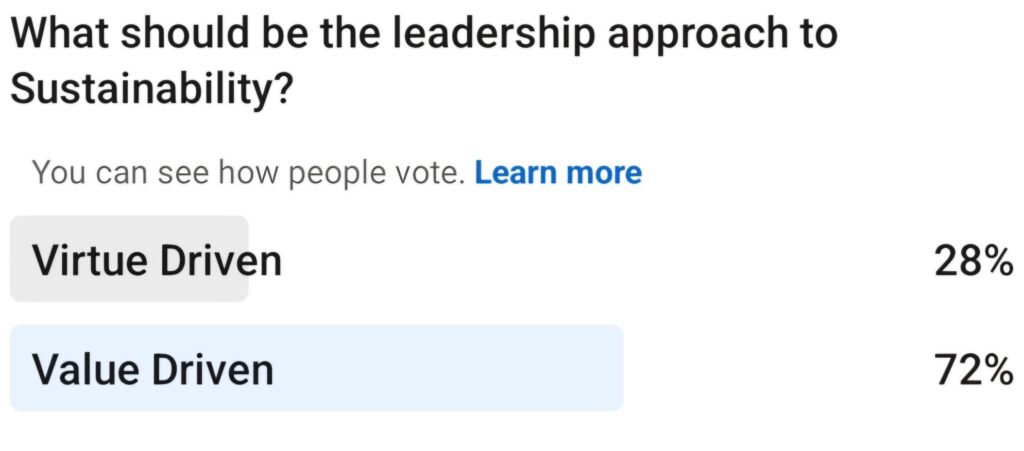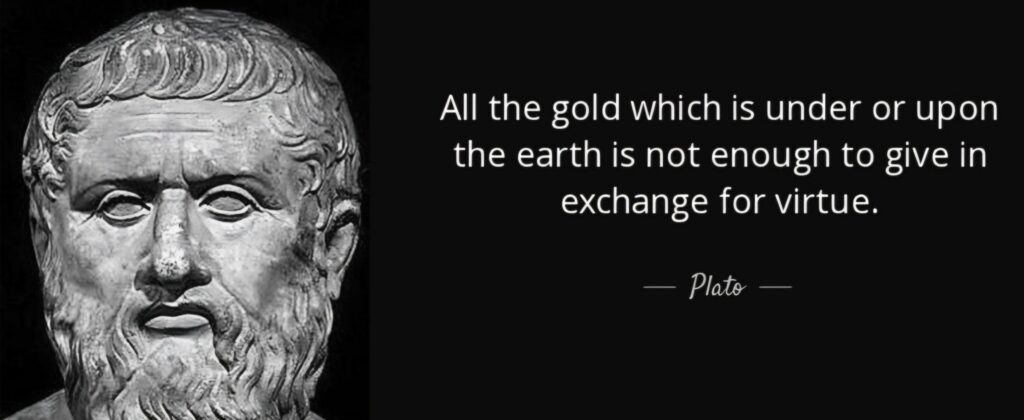
We were in Philosophy class, talking about the critical theory, namely how societal structures of powers have evolved and how they often lead to broader inequities. During this interaction, the core centre of the discussion was based on the wider idea of values — primarily ideals and goals that shape our actions. But more than esoteric ideals — there is something more substantial but not given as much attention, which is virtue. This is all the more relevant when we look at things from the prism of sustainability.
So, exploring sustainability in the context of value or virtue, I conducted an online survey on LinkedIn, asking my vast network of sustainability professionals a simple query: What should be the leadership approach to sustainability, value-driven or virtue-driven?
Not surprisingly, the value-driven approach got 72% of votes versus 28% for the virtue-driven approach. With decades of focusing on the ideals of mission, vision and values in the corporate space, we seem to have lost the value of virtues in the business space (pardon the pun).

Let me explain. Values are beliefs or principles that one considers important. While this can be important for someone to start action, it may not ensure sustenance over a long time because values are relative and need not be consistent. And it is not individual alone; even institutional or national values undergo shift with a change in leadership. The best instance of that is the second coming of President Trump and MAGA.
Meanwhile, virtues have a longer shelf life. They require a deeper level of commitment, a quality an individual cultivates through practice. Through consistent practice, it is ingrained into the individual. When it comes to sustainability, the virtues of leadership set the value system in their institutions.
Talking about Virtues, the Bṛhadāraṇyakopaniṣad guides us to three virtues that, as humans, we should imbibe, which are self-control (dama), giving (dāna) and compassion (dayā). I have found the Thirukkural also explaining about virtue. Aram (Virtue) is the first of the three sections of Tirukkural, written by Thiruvalluvar, the Tamil poet and saint. Here is a small example from Thirukkural.
அறத்தினூஉங்குஆக்கமும்இல்லைஅதனை
மறத்தலின்ஊங்கில்லைகேடு.
AraththinoounguAakkamumIllaiAdhanai
MaraththalinOongillai Ketu (Transliteration)
There is no greater gain than virtue. There is no surer path to ruin than its neglect.
It is not just Eastern philosophy that keeps virtue on a high pedestal. Even in the West, for Aristotle, virtue is excellence in being human. At the same time, Plato lists four cardinal virtues: Prudence, Fortitude, Temperance and Justice—all of which point to the importance of virtue.

If a leader develops virtues that integrate sustainability, hardwiring the organization’s value system is easier. Leadership is not just occupying a position of power but also a responsibility to various stakeholders. Embracing virtues that support sustainability principles is not just the right thing to do in the leadership context but also a smart thing.
But I would be lying if I said being ‘virtuous’ is easy. Integrating sustainability into virtues of leadership, such as courage, justice, and humanity, is critical and takes effort. These are not just good qualities leaders are born with; you must nurture them as part of your leadership character. Rowing through that line of thought, you can visualize how important integrating sustainability is to the foundation blocks of virtue of leadership. Think about the transformative power that virtues can bring: Courage to pursue long-term sustainable goals, challenge the status quo and stand firm to deliver ethical responsibilities, delivering justice in a multi-stakeholder environment, standing up for stakeholders like future generations, life beyond humans, who cannot represent themselves in the corporate board rooms. Humanity, which stems from empathy towards fellow beings, is critical. You might have already started identifying some leaders who are aligned or misaligned on this. More so in turbulent times, standing steady on your virtues is critical for leaders to be trusted, to be connected and to march along with others.
Leadership is also a reflection of the choices of actions, and it can be very tough if you approach it without virtues. We remember those leaders who made those choices guided by their virtue. Being a CEO is an accountability, but responsibility goes beyond what you are accountable for. Understanding this is the first step in integrating sustainability with virtue as part of your leadership character. We need leaders who can bring about change much faster and with steady thoughts to chart into a sustainable future. That will come from the virtues of the leaders who will instil a value system. Without virtue, there is no value (in our actions), and value without virtue can be pretty shallow and hopeless.
Instinctive response, brilliant article and so timely with DEI being shunned as part of wokeism.
As you rightly said value is relative. Virtue is not.